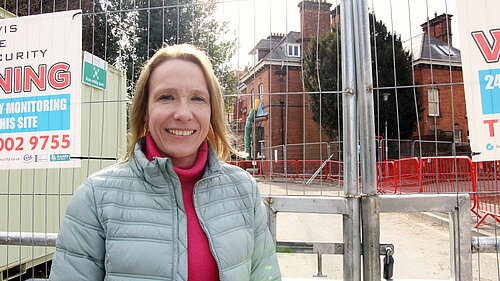Helen calls for more affordable housing to help local families

Helen Morgan called for more affordable housing to help families and businesses in Shropshire as she highlighted the plight of people stuck in substandard accommodation.
The North Shropshire MP and Liberal Democrat Housing Spokesperson used a speech in the House of Commons to speak up for constituents who are living in cramped, damp and mouldy homes due to the absence of affordable housing.
Helen also said that rural businesses are being held back from their full potential, with the lack of available housing making it difficult to attract staff to the area.
Speaking after the debate, Helen Morgan MP said, “Anyone who has tried to rent or buy recently will know we need much more affordable accommodation here in North Shropshire and across the country.
“The housing crisis is hitting local families hard. It also hurts the local economy and hampers our education system because the infrastructure does not exist to allow businesses to grow or to sustain smaller schools.
“The housing supply must be increased, with the right homes in the right places. That means giving local authorities the power to put homes in the areas where they are most needed.”
Helen called for at least 150,000 new homes to be built for social rent across the country each year and for local authorities to decide how many of these they need in each area.
During her speech in the Commons, Helen highlighted examples in North Shropshire including a family of seven living in a two-bed home, a woman with mental health problems living in a B&B for months on end and a family with a disabled child unable to find a home with step-free access.
Just 11% of affordable housing delivery is built in rural areas each year and estimates show that rural homelessness has increased by 24% in the past year.
Helen explained, “For every eight homes sold through the right-to-buy policy in a rural area, only one has been replaced. Overall, only 8% of rural housing stock is affordable compared with 19% in urban areas. This not only deprives people of the basic need of a home, but creates a barrier to the rural economy, causing businesses to struggle to recruit the quality of workforce they need to survive. In short, we need more affordable and socially rentable homes, and we especially need them in rural areas.”
